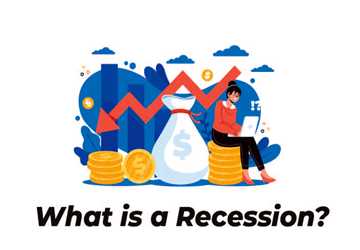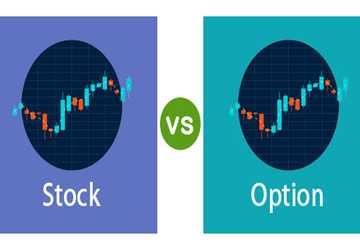Why Do People Prefer Buying Shares?
Author: abhijeetm
Many technical concepts are taking shape, among which cryptocurrency, share market, digital market, and most importantly, share-purchasing have gained much popularity. All these things are straightforward to understand and reach out to; that's why more and more people are engaging in these things. However, comparing all these concepts or terms of investments brings more clarity to the people. To be precise, investing in shares provides much more financial convenience to people.
Buying shares is far better and more influential than the other investment options. From the stats, it is noticed that around 55% of people in the USA are investing in shares, whereas in India, only 3% of people are investing in shares. The share market has witnessed massive growth these days. Regardless of all the rules and regulations that buying shares has, it is recommended that one should prefer buying shares if he wants a much more stable and long-lasting financial status.

Reasons Why People Prefer Buying Shares:
Purchasing shares may seem problematic initially, but eventually, it proves very effective for people in many ways. These ways are also important reasons people prefer to buy shares instead of investing in FDs, savings, or even stock markets.
In this context, the following is a list of some significant reasons why one should prefer buying shares as compared to other investment options:
● Continuous creation of wealth is facilitated:
Investment is made to ensure that the continuous creation of wealth occurs, and the best place to ensure this is done correctly is through shares. Shares are very convenient to purchase and provide the comfort of continuous wealth creation, and buying shares can profit you much more than investing in other options.
● Opportunities of owning a company increase:
Purchasing shares is indirectly an opportunity to own a company but includes taking small steps. If you start investing in a company's shares, you will get to know the working process better. Once you find the right opportunity, you can even purchase the whole company to make changes according to your will and do good business.
● Diversity in your portfolio can be seen:
Your portfolio gets an addition and significant diversification when you buy shares and not any familiar investment options. This diversification helps a lot in your professional growth moving ahead.
● Financial losses minimize to a great extent:
When you purchase shares of more than one company at a time by setting a particular budget for yourself, you don't face financial loss in the first place and keep reducing these losses moving ahead. This means even if one company you invested in is in trouble, you can keep compensating your loss from the shares of the one that is going well.
● Accessibility to money is more in the case of shares:
Shares allow you to claim your cash anytime by selling them when you are in financial need. This doesn't occur in other investments because they have a fixed investment tenure. If this tenure is broken, then a penalty needs to be paid; however, this is not the case with shares.
● Safer than the share market money loss risks:
Share market is a continuously fluctuating money investment option that doesn't give you the freedom to have wealthy returns from your investment. However, this is not the case with shares, as whatever asset you have made in buying them will be returned to you (maybe much more than that) when selling these shares.
● Dividend benefits increase with the purchase of multiple shares:
Apart from the freedom to have your money back whenever you sell your shares, you can also receive a particular amount regularly as a dividend. A dividend means some of the profit percent of the business whose shares you have purchased. Sometimes when the company is in profit, the dividend amount is much more than the interest you receive from other investment options.
All the above reasons for buying shares are entirely authentic and justified. That is why considering these as a top priority and then deciding whether to purchase shares for yourself will benefit you by all means.

Requirements for Buying Shares:
Buying shares is a straightforward task, irrespective of the fact that many people consider it difficult in the beginning. Because of incomplete knowledge and experience in buying shares, some belief in other investment options, but this is not proven valid after a few years. So, if you have researched investment options in detail and have come to a conclusion of buying shares, then you need to fulfill the below requirements properly:
● Having an authentic ID Proof:
The ID proof required for buying shares can be a PAN or an Aadhaar card to properly trace and record your identity.
● Having a demand/ Trading Account:
Opening a demand/trading account is also very important for buying shares so that the transaction status is kept safe and separate from personal transactions.
● Registering to a brokerage Platform:
You need to register on an authentic brokerage platform to keep receiving updates about the sale of shares of any company.
● An authentic bank account:
Having an authentic bank account is very important when you want to buy shares. This is because your identity needs to be adequately detected for further procedures, and no trouble in that context should occur. Also, you should ensure that your bank account is properly working and not put on hold for any reason, such as a low balance.
If any of the above requirements for buying shares is not fulfilled, you may suffer more troubles than regular investment options. This is mainly to ensure that not even the slightest fraudulent activity occurs in this field and that your purchased shares always benefit you.
Conclusion:
Purchasing shares may be stressful when you are at the early stage of learning about them. However, as time passes, this becomes much easier for you, and eventually, you start understanding the fun and importance of the same. But, to reach that point, you should dig deeper into the concept. You also need to find some significant differences between investing in stock markets, FDs, savings accounts, and purchasing shares, to be precise.







